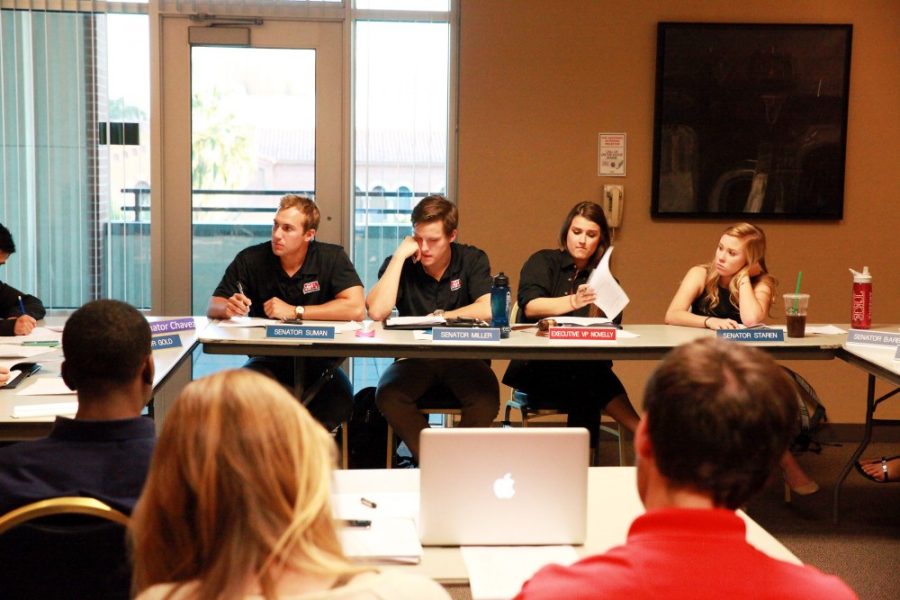With its term drawing to a close, the ASUA Senate is looking to allocate its remaining funding to organizations on campus.
The Associated Students of the University of Arizona Senate is sitting on a remaining budget of roughly $7,000 to $8,000, according to Issac Ortega, ASUA treasurer and president-elect.
Executive Vice President Danielle Novelly requested $1,500 from the ASUA Senate budget to help the appropriations board, which has already exhausted its funds. Recently, for example, Mock Trial made it to nationals, and Novelly lamented that the appropriations board was not able to fund the club as much as it should have.
“We have an overwhelming amount of clubs asking for money for conferences and trips,” Novelly said, “but we are out of money.”
Sen. Zachary Miller spoke in favor of the funding and said the senate should be supporting the clubs and students as the time to use its budget runs out.
“I definitely think this is something we should fund,” Miller said.
The funding was approved to be given out to other clubs, and Novelly voiced her support for the move.
“Thanks for money for appropriations; that really helps out,” Novelly said. “They want to do great things, and they are already doing great things.”
Brandon Murphy, chief of Emergency Medical Services and a communication senior, requested the funding to purchase two more automated external defibrillators for EMS.
EMS currently owns two AEDs, but Murphy said he believes that more are necessary.
“The use of this [AED] alone increases survival, but combined with EMTs and paramedics, the increase in survival is tenfold — it’s paramount,” Murphy said. “This equipment is life-saving and relatively inexpensive. … They’re so vital to administer care quickly for the outcome of the patient.”
Recently, EMS has been asked to be at many events, but its resources can’t support events with more than 10,000 people. The additional AEDs will better equip the EMS crews to assist people when necessary.
Several senators supported the funding, including Sens. Elana Roeder and Christopher Seffren.
“I believe that one of the best investments we can make is an investment in the safety of the people we represent,” Roeder said. “It’s reassuring to know that if anything happens, they’ll be there. I think it’s important.”
Seffren noted that cardiovascular disease is a leading cause of death in the U.S. and that funding would be important.
“I think it’s a good investment, not too much money and a benefit for everyone on campus,” Seffren said.
During the meeting, Brian Seastone, chief of the University of Arizona Police Department, took a moment to discuss his plans for UAPD.
“My vision is to advance the safety and success of the university through crime prevention and professionalism,” Seastone said.
Seastone brought up steps that have already been taken to make the campus and the department more community-oriented, such as becoming more tech-oriented and having more police officers out on foot in places they do not usually go, such as resource centers, to make them more approachable.
Another aspect that Seastone emphasized was his desire to have partnerships with campus groups to cooperatively improve safety.
“Collaboration is important — working together and communication,” Seastone said. “If we don’t know about it, we can’t fix it. We have a great community here that comes together, and we want to be part of the community.”









